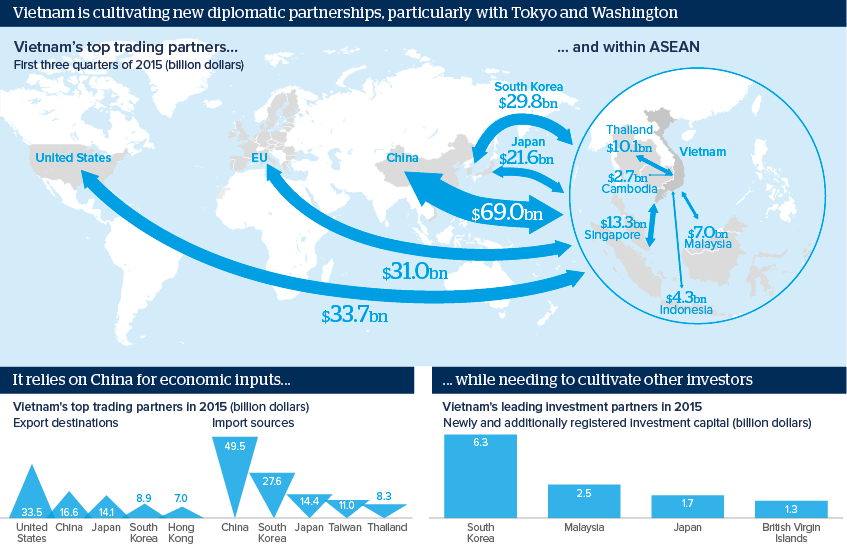Vietnam's economic needs will limit diplomatic freedom
Vietnam seeks a wider array of diplomatic partners to counterbalance Beijing's maritime assertiveness

Source: IMF; Vietnam customs department; Ministry of Planning and Investment, Oxford Analytica
Outlook
The Communist Party of Vietnam's new Politburo will probably be economically and politically conservative (left-wing) down to 2021. The party congress re-elected Nguyen Phu Trong as general secretary in January, stunting the political fortunes of outgoing Prime Minister Nguyen Tang Dung, who had been regarded as a more market-orientated 'reformer'.
Despite this 'conservative turn', Vietnam will still seek new diplomatic partnerships to counterbalance Beijing's geopolitical assertiveness, particularly in the South China Sea. Yet Vietnam's economic reliance on China -- especially if Hanoi is to meet its annual growth target of 6.5-7.0% of GDP to 2020 -- will limit its freedom of movement.
Impacts
- Hanoi will face US pressure to make human rights and labour reforms as ties deepen, for instance through the TPP.
- Beijing will keep pressure on Hanoi in the South China Sea, but likely offer greater investment and materiel support.
- Despite its conservatism, Hanoi will push investor-friendly economic reforms, though at a slower pace.
- Vietnam's government will seek deeper security partnerships, especially with ASEAN, Japan, the United States and Russia.